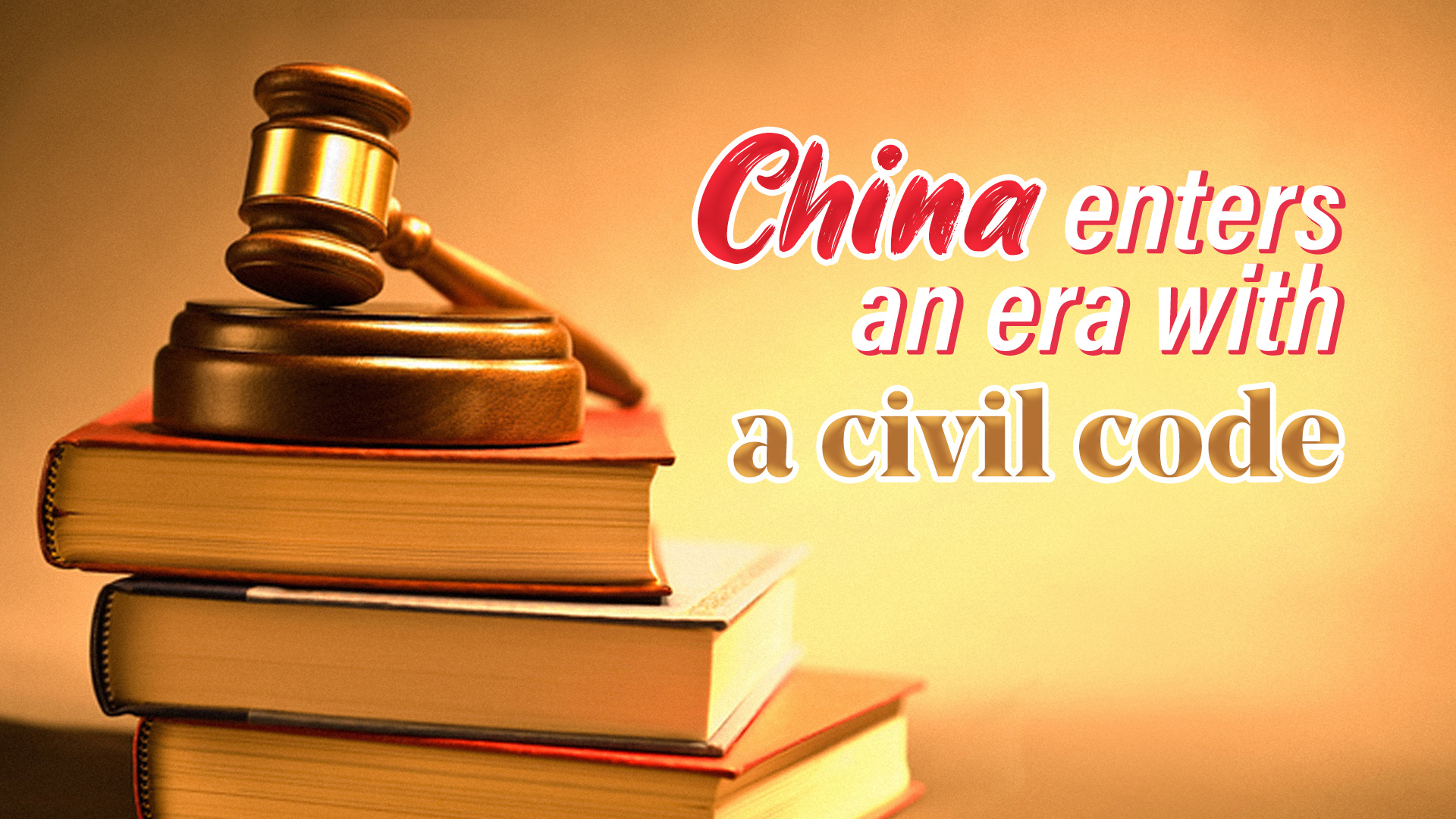On May 28, 2020, China has just enacted its first Civil Code, to be effective as from January 1, 2021, a long-awaited legislation that aims to codify China’s fragmented civil laws. Brought under its umbrella are China Civil General Provisions (Chapter I), China Property Law (Chapter II), China Contract Law (Chapter III), China Personal Right Law (IV), China Marriage and Family Law (Chapter V), China Succession Law (Chapter VI) and China Tort Law (Chapter VII).

This post focuses on the major changes brought about by the Civil Code to China Succession Law.
I. Estate Administration Reform
Under old China Succession Law, there is no meaningful framework established for administering estates when one dies. In practice, in either intestate inheritance or testate inheritance, it is the duty of the heirs and/or the beneficiaries who shall cooperate and work together to carry out the inheritance of estates of the deceased (for a general understanding about inheritance of estates in China, please read Three Ways of Inheriting Estates in China). Generally, there are multiple interested parties in an inheritance case which often means rifts and disputes during the process of getting the inheritance completed.
Now Articles 1145 to 1149 of the Civil Code create and establish for the first time the framework of administering estates in China:
Article 1145 Where one dies, the executor(s) is the estate administrator; in absence of an executor, the heirs shall timely recommend and elect the estate administrator; where the heirs fail to recommend and elect the administrator, the heirs shall jointly serve as estate administrators; in case there is no heir or all heirs waive their right to inheritance, the civil department or village commission in the place of the deceased’s domicile shall appoint an executor.
Article 1146 Where there is a dispute over who shall serve as the estate administrator, an interested party may petition the court for appointing the estate administrator.
Article 1147 An estate administrator shall perform and discharge the following responsibilities:
(1) sort out and make inventory of the estates;
(2) report the details of the estates to the heirs;
(3) take necessary measures to prevent the damages or loss of the estates;
(4) deal with the credits and debts of the deceased;
(5) divide and disperse the estates according to will or in accordance with laws;
(6) take any other necessary actions in connection with the administration of the estates.
Article 1148 An executor shall perform and discharge his responsibilities pursuant to laws, and shall be liable to heirs, non-heir legatees, or creditors for any damages caused with intention or gross negligence.
Article 1149 An executor may be entitled to compensation according to laws or agreements.
These five new provisions lay out the framework of estate administration in China.
As we can see from the quoted provisions, China has adopted a new framework for estate administration whereby an estate administrator is now a compulsory role. Further it is also clear that such an administrator is not restricted to certain scope of people (such as family members) and can be a professional such as attorney or accountant. Apparently this opens a new line of business for estate practitioners in China.
Upon examining the responsibilities and duties of an administrator as listed in Article 1147, it is a pity that the law is not clear on whether an administrator has the power to sell or otherwise dispose of estates (such as real properties or stock) before titles of those estates are transferred to heirs or other beneficiaries. As a matter of law and practice in China, when the estate is a piece of real property, it can only be sold after title is transferred to heirs or beneficiaries. Why not allow the administrator to sell such estate properties earlier and distribute the sale proceeds among the heirs or beneficiaries?
II. New Form of Will Recognized
The outgoing old China Succession Law was enacted back in 1985, a time when computers are not part of our daily life. So in this old law, we have a few forms of wills recognized as valid, please refer to an older post for more: Make a Will Disposing of Properties in China.
Basically, the old law gives more credits to wills that are hand-written and notarized. In particular, a notarized will is presumed to be valid unless proved otherwise. What’s more, a will made later shall not revoke and replace the prior notarized will except that the later will is notarized as well.
With rise of using computer to print wills in practice, judicial practice in China has seen different treatment of printed wills under the old China Succession Law. Now the Civil Code calls an end to this confusion.
Article 1136 A printed will shall have at least two witnesses on spot. The testator and witnesses shall sign on each page of the will, and shall specify the year, month and date thereon.
Provision on Printed Wills in China Civil Code.
So it is now clear as to the legal status and practice of the printed wills. According to this, a will can be printed and be valid so long as there are at least two persons witnessing the will and both testator and the witnesses sign on each page of the will and specify the year, month and date. This new form of printed testament will be the predominant form of wills to be used in practice, bringing China testament practice in line with most of other countries such as USA, UK, Canada, Australia.
III. Addition of Circumstances of Disinheriting an Heir
Compared to Article 7 in old China Succession Law, in addition to originally prescribed circumstances of killing the deceased, other heirs, abandoning or torturing the deceased, forging, tampering with or mutilating a will, Article 1127 has expanded the scope of events that will disinherit an heir:
(1) concealing a will leading to serious consequences; and
(2) by virtue of fraud or coercion, coerce the deceased to or obstruct the deceased from making, amending or revoking wills, leading to serious consequences.
Concealment of wills does happen, esp in cross-border inheritance cases because of asymmetry of information between conflicting heirs. One can imagine that it is very difficult to prove concealment in practice.
Given the ambiguity in proving the added events in (2) above, we anticipate that there will arise a lot of cases in which one party tries to strike out a will produced by the other party. A similar post in this regard:Challenge the Validity of a Will Made under Chinese Inheritance Law.
IV. Expansion of Inheritance in Subrogation
Estate practitioners in China have long called for expanding scope of inheritance in subrogation to avoid estate being unclaimed and thus falling into the hands of the state.
Under old China Succession Law, only one case of inheritance in subrogation is provided: where the deceased survives his or her child, then the direct lineal descendants of the predeceased child shall inherit the share of estate that would have otherwise gone to the predeceased child.
Now Article 1128 provides that inheritance in subrogation is now extended to the direct lineal children of the siblings of the deceased. By illustration:
Tom dies, and he has no wife and children in his whole life, and his parents have died before him. Under old China Succession Law, there is no heir of first sequence (parents, spouse and children), and we should look at the heirs in the second sequence (grandparents and siblings). Unfortunately, Tom’s only sister Mary has died before him as well. In this case, the old China Succession Law directs that Tom’s estate will go to the state. However, under China Civil Code, Mary’s children can now claim the estate as if Mary had survived Tom.
Illustration of Inheritance in Subrogation by Children of Siblings.
These are the four major changes brought about by China Civil Code in respect of inheritance of estates in China, by contrast to the rules in old China Succession Law.
Lastly please be advised that China Civil Code will only come into effect on January 1, 2021. Inheritances that take place prior to the effectiveness of the Code will be dealt with according to the old China Succession Law.





Comments